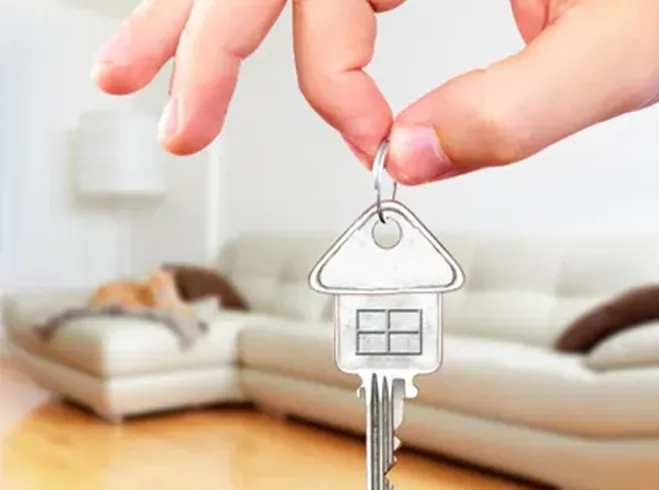
Tax on Rental Income and Landlord Tax
Thinking of becoming a landlord? Here you’ll find all sorts of information on paying tax on rental income: why you pay rental Income Tax, the rates at which you pay tax, how to work out the amount you’ll pay, expenses and tax relief, how tax credits work and more. Our guide gives insight on how landlord tax is applied when it comes to rental property and your allowances.
Fill out this enquiry form and we’ll contact you to book a free call with one of our mortgage experts.
"*" indicates required fields
This guide has been produced for information purposes only. As a buy-to-let mortgage broker, we’re not able to offer tax advice.
Buy to lets can be extremely lucrative so they attract a lot of entrepreneurial thinkers. They also intimidate masses of potential landlords because they’re taxed in a very specific way.
Contents
Do You Pay Tax on Rental Income UK?
Yes, you do pay tax on rental income in the UK. You simply pay Income Tax on rental income; the same tax most people pay on the money they earn from work.
However, following the November 2025 budget, it has now been announced that from April 2027 rental income will be taxed at different rates from typical Income Tax rates. It will still adhere to the same thresholds as normal Income Tax, but the rates paid on rental income from property will be separate and slightly higher.
You might come across terms like landlord tax, property income tax, or buy-to-let tax, but these are often just different ways of referring to the same thing: Income Tax on your rental earnings.
What Other Landlord Tax Do I Pay?
UK landlord tax comes in different forms: Stamp Duty Land Tax, Capital Gains Tax and Income Tax on rental income. These are the main 3. But you don’t pay them all at once.
You pay Stamp Duty on the initial property purchase and you’re charged Capital Gains Tax when you sell an investment property.
You pay Income Tax on the rental income you receive from a buy-to-let property.
If you get a buy-to-let via a limited company in the UK, you pay Corporation Tax on the rental income instead of Income Tax. You can find more information on this below.
You can also compare limited company buy-to-let mortgage rates with our free best buys tool if you’d like to know more this kind of setup.
Note: the Financial Conduct Authority does not regulate some forms of buy-to-let mortgages.
What Counts as Rental Income for Landlords?

Rental income is classed as any money you receive from tenants for:
- Rent
- Furniture usage
- Fees for services such as cleaning or gardening
- Regular maintenance
- Heating
- Repairs
- Hot water
- Lease bonuses or other non-refundable deposits
- Any amounts received from tenant forfeits or deposit retentions
How Is Tax on Rental Income Calculated in the UK?
You’re taxed on your net rental income - i.e. the profit you make as a landlord. This is calculated by adding together all the rental income you receive from various properties and then subtracting any rental Income Tax allowances, relief or allowable expenses (total rental income minus property allowance or allowable expenses).
See Buy to Let Allowable Expenses below for more information on those landlord tax deductions.
How Much Tax Do I Pay on Rental Income UK?
To calculate your tax on rental income, use the Income Tax rates and thresholds:
| Income Tax band | Taxable income 2025 – 2026 | Income Tax rate 2025 – 2026 | Property Income Tax rate 2027 – 2028 |
|---|---|---|---|
| Personal allowance | Up to £12,570 | 0% | 0% |
| Basic rate | £12,571 – £50,270 | 20% | 22% |
| Higher rate | £50,271 – £125,140 | 40% | 42% |
| Additional rate | Above £125,140 | 45% | 47% |
Here’s some important information about paying tax on rental income:
- Your Income Tax band determines how much tax you’ll pay on rental income in a given year. Since rental income is added to your total taxable income, it may push you into a higher tax band
- If your total income is above £100,000, your personal allowance is reduced by £1 for every £2 over this amount
- If your total income exceeds £125,140, you do not get a personal allowance at all, meaning all income is taxable
Example
Calculate your rental income profit
- You earn a salary of £40,000
- You also receive £20,000 in rental income
- You deduct £5,000 in expenses from your rental income to reveal your net rental income of £15,000
- These are your only sources of income
- You add together your salary and net rental income to determine your total taxable income: £40,000 + £15,000 = £55,000
- You fall within the higher rate tax band
Calculate your tax on rental income
2026/27
- 0% on the first £12,570 = £0
- 20% on the amount above £12,570 and up to £50,270 (£37,700 total) = £7,540
- 40% on the remaining £4,730 above £50,270 = £1,892
- Total Income Tax, including tax on rental income = £9,432
2027/28
- 0% on the first £12,570 = £0
- 20% on your remaining salary amount above £12,570 (£27,430 total) = £5,486
- 22% on the amount from rental income above £12,570 and up to £50,270 (£10,270 total) = £2,259.40
- 42% on the remaining £4,730 above £50,270 (which is from rental income) = £1,986.60
- Total Income Tax on salary = £5,486
- Total Income Tax on property = £4,246
- Total Income Tax altogether = £9,732
How Does Rental Income Affect Your Tax Band UK?
Your rental income is added to your personal income to reveal your Income Tax threshold. Currently, your total income is then taxed at the appropriate rate according to your Income Tax threshold.
From April 2027, the portion of your income that you receive from rental properties will be taxed at a slightly higher rate than normal Income Tax, but it will still be added to your personal income to determine your Income Tax bracket in the same way.
Tax on Rental Income for 2025 - 2027 Tax Bands
- Income below £12,570 = you pay 0% tax on rental income
- Income between £12,570 and £50,270 = you pay 20% tax on rental income
- Income between £50,270 and £125,140 = you pay 40% tax on rental income
- Income over £125,140 = you pay 45% tax on rental income
Tax on Rental Income for 2027 - 2028 Tax Bands
- Income below £12,570 = you pay 0% tax personal and rental income
- Income between £12,570 and £50,270 = you pay 20% tax on personal income and 22% tax on rental income
- Income between £50,270 and £125,140 = you pay 40% tax on personal income and 42% tax on rental income
- Income over £125,140 = you pay 45% tax on personal income and 47% tax on rental income
Are Income Tax Rates Changing in 2026 for Rental Income?
Income Tax rates and thresholds are staying the same in 2026.
Are Income Tax Rates Changing in 2026 for Rental Income?
From April 2027, Income Tax rates will change for rental income. Instead of paying normal Income Tax rates on rental income at 20%, 40% and 45%, you will slightly higher Property Income Tax rates on rental income at 22%, 42% and 47%.

Types of Property Ownership and the Impact on Landlord Rental Income Tax
The main types of property ownership that can affect the Income Tax you pay on rental income include the following:
- Sole ownership – if you own the rental property by yourself, you’ll pay Income Tax on the whole income from that property
- Jointly-owned property – if you own a rental property with other people, you’ll pay Income Tax on the property’s income relative to your share in the property. If you jointly own some properties and solely own other properties, the income is counted as one business for tax purposes
- Property jointly-owned with a spouse or civil partner – if you own a property with your civil partner or spouse, you will usually be taxed as if you own equal shares of the property. If you own unequal shares, you will need to demonstrate and provide proof of this to HMRC in order to pay the correct tax
- Owning property through a company – if you own property through a limited company, you’ll be liable for Corporation Tax on the profits not Income Tax
How to Avoid Paying Tax on Rental Income
Looking for tips on how to avoid landlord taxes isn’t the best idea, as the suggestions you’ll find are usually unreliable and more risk than they’re worth. Instead, make yourself aware of the allowances that suit your situation and discuss tax-efficiency with your accountant. You may learn how to pay less in tax on rental income than you first thought.
How to Reduce Tax on Rental Income in the UK

You can reduce the tax you pay on rental income in the UK through tax allowances, deducting allowable expenses and potentially opting for a limited company buy-to-let ownership structure.
Landlords are taxed on their net rental income – i.e. the profit left over when you subtract your property allowance or allowable expenses from the total amount you receive in rent. HMRC have strict tax rules on the income from rental property, which means to make the most of your potential tax reductions, you need to know what you can and can’t claim as an allowance or allowable expense for rental Income Tax.
Landlord property allowance
The first £1,000 of rental income you receive each tax year is tax-free, known as the Property Allowance. This means that landlords earning £1,000 or less in gross rental income do not need to report it to HMRC or calculate expenses, as they receive full tax relief.
If your rental income exceeds £1,000, you must declare it and choose between:
- Claiming the £1,000 Property Allowance, or
- Deducting actual allowable expenses from your rental income
You cannot claim both in the same tax year.
Landlords who choose the Landlord Property Allowance benefit most when their deductible expenses are less than £1,000, as they can claim a larger tax-free portion of their rental income.
Allowable expenses for rental Income Tax
If your deductible expenses are more than £1,000, you may find it more tax-efficient to claim these individual costs rather than the property allowance.
You do not pay tax on allowable rental expenses, but they must meet certain criteria to qualify as an allowable expense. Expenses can only be deducted if they are exclusively related to renting out the property and paid by the landlord, not the tenant.
Common deductible expenses include letting agent fees, maintenance and repairs (not improvements), Council Tax, and landlord insurance.
Landlords can no longer deduct mortgage interest from their taxable profit however they do receive a tax credit equal to 20% of their mortgage interest payments, which is subtracted from their final tax bill.
Capital allowance for rental property?
Capital allowances are a form of tax relief that let businesses claim deductions for certain capital costs – like equipment, machinery, and commercial vehicles. In the context of property rental, capital allowances can apply, but typically only in specific cases.
If you’re running a furnished holiday let or a commercial property rental business, you may be able to claim capital allowances on things like fixtures, fittings and certain equipment used in the property. However, for standard residential buy-to-let properties, capital allowances generally aren’t available.
That said, there are other types of relief landlords can claim – so it’s worth understanding what applies to your situation.
Buy-to-let mortgage tax relief
You can get tax relief in the form of a tax credit to reduce the Income Tax payable on your rental income. The tax credit is equal to 20% of your buy-to-let mortgage interest payments.
This tax credit system replaced the previous mortgage interest deduction, which allowed landlords to offset their full mortgage interest against rental income before calculating their tax. This reduced taxable income, lowered the amount of tax owed and could even keep landlords in a lower tax bracket.
Limited company buy-to-lets
Some landlords find it more tax-efficient to purchase a buy-to-let property through a limited company, as the taxation of rental income differs from that of personally owned properties.
You do not pay personal Income Tax on rental property owned through a limited company. Instead, the company pays Corporation Tax on its profits. HMRC does not consider your personal income when determining the Corporation Tax rate, as it applies at the company level.
Corporation Tax rates for 2025/26 and 2026/27:
- 19% for profits up to £50,000
- 25% for profits over £250,000
- Marginal relief applies for profits between £50,000 and £250,000, meaning the effective rate is between 19% and 25%, depending on profit levels
This structure can sometimes be more tax-efficient, which is why many landlords consider using a limited company.
Additionally, landlords operating through a limited company may have greater flexibility in claiming allowable expenses, as the property is considered a business asset rather than a personal investment.
Find out more in our guide: How Does a Buy-to-Let Limited Company Work?
For advice on landlord tax relief and tax efficiency, consult a qualified accountant.
Do I Have to Pay Tax on Rental Income if I Have a Mortgage?
Yes you still have to pay tax on rental income if you have a buy-to-let mortgage. However, you receive Income Tax relief in the form of a 20% tax credit.
How Does the 20% Tax Credit Work for Landlords?
- You calculate your taxable rental profit (without deducting any mortgage interest)
- You pay Income Tax on the full rental profit at the applicable rates (20%, 40%, or 45% up to April 2027 and 22%, 42% and 47% from April 2027)
- You receive a 20% tax credit on your mortgage interest costs, which is applied against your final Income Tax bill rather than reducing your taxable rental income
Example for 2026/27
- You are a higher rate taxpayer (40% tax rate)
- Your rental income is £30,000 per year
- Your mortgage interest payments total £10,000 annually
- Your allowable expenses (e.g. maintenance, insurance, etc.) are £5,000
- Rental Income (£30,000) minus Other Expenses (£5,000) = £25,000 taxable profit
- Note that mortgage interest (£10,000) is not deducted at this stage
- Your Income Tax owed is 40% of £25,000 = £10,000
- Your mortgage interest tax credit is 20% of £10,000 = £2,000
- Your tax credit (£2,000) is deducted from your tax liability (£10,000) = £8,000
- £8,000 is your final Income Tax bill
Do I Pay Income Tax on Rental Income if It’s My Only Income?
You may still need to pay tax on your rental income, even if it’s your only source of income. In the UK, all rental income must be declared to HMRC, and it’s treated as part of your overall taxable income.
However, there is a personal allowance – currently £12,570 per year – which means you won’t pay any Income Tax if your total income (including income that’s only made up of rental income) falls below that threshold. If your total income exceeds this amount, then you’ll likely have to pay tax on the portion above the allowance.
It’s also worth noting that you can deduct certain allowable expenses, like letting agent fees, maintenance costs and insurance, which can reduce the amount of tax you owe.
What Happens with Rental Income from Multiple Properties?
If you own multiple rental properties, the income from all properties is typically combined to determine your total rental income. Expenses from one property can often be deducted from the income of another, which can help in reducing your taxable income. Here are key points:
- Keep detailed records for each property
- Aggregate income and expenses to calculate the total taxable amount
- Use the total net profit or loss across all properties in your tax calculations
Do I Have to Pay UK Tax on Rental Income from a Property Overseas?
Tax for overseas property rentals is largely handled in the same way as UK property rentals. If you live in the UK and are domiciled in the UK, it’s likely you’ll have to pay Income Tax on your income from overseas properties. If you’re not a UK resident, you won’t have to pay UK Income Tax on this rental income. This includes if you’re in the UK but your permanent home or domicile is overseas.
Depending on your circumstances, you might have to pay tax to the country from which you gain the income as well as pay UK Income Tax. You can look into Foreign Tax Credit Relief to reduce how much tax you have to pay. If you have rental properties in the UK as well as overseas, it is highly advisable to get professional advice from a tax adviser or accountant.
Do I Have to Pay Income Tax on Renting a Room in My House?
If you rent out a room in your home, you might not have to pay tax – thanks to the Rent a Room Scheme.
Under this scheme, you can earn up to £7,500 per year tax-free by renting out a furnished room in your main residence. If you share the income with someone else (like a partner), the allowance is split – so you each get £3,750.
If your rental income goes over the threshold, you’ll need to declare it and may have to pay Income Tax on the excess. You can either deduct actual expenses or opt into the scheme and claim the tax-free allowance – it’s up to you which is more beneficial.
Just remember: the scheme only applies if it’s part of your main home and the space is furnished.
Do I Have to Declare Rental Income from a Family Member in the UK?
Yes, if you’re charging rent – even to a family member – you may need to declare that income to HMRC.
It doesn’t matter who the tenant is; if they’re paying you to live in your property, it’s considered rental income and could be taxable. You’ll need to report it on your Self-Assessment tax return, just as you would with any other tenant.
However, there’s a bit of a grey area. If your family member is just contributing to household bills or giving you a token amount that’s well below market rent, HMRC might not treat it as taxable income. But if it’s more formal – like a regular rent payment – it’s safer to declare it.
When in doubt, it’s always best to keep records and speak to an accountant or tax adviser.
Losses: Handling Rental Income Tax Losses
If your allowable expenses exceed your rental income, you will have made an Income Tax loss. This is common in the first year of renting out a property due to upfront costs such as refurbishments, letting agent fees and other expenses.
- Rental losses cannot be offset against salary, dividends, or other income
- Losses can be carried forward to reduce taxable rental profits in future years
- If you own multiple rental properties, a loss from one can offset profits from another within the same tax year
Do I Need to Declare Rental Income if There Is No Profit?

Yes, you might still need to declare your rental income even if you haven’t made a profit.
HMRC is interested in your rental income, not just your profit. If your income from property exceeds £1,000 in a tax year (known as the property allowance), you’re required to declare it – regardless of whether your expenses have wiped out any profit.
The good news is, if your allowable expenses (like letting agent fees, repairs, or mortgage interest) are higher than your rental income, you may not owe any tax. But you’ll still need to report it on a Self-Assessment return to show HMRC that you’ve made a loss.
That loss can sometimes be carried forward and offset against future rental profits, so it’s worth declaring even if you haven’t made any money yet.
How to Pay Income Tax on Rental Income
The process of paying Income Tax on buy-to-let property income depends on the amount of rental income you receive.
If you:
- Earn less than £1,000 a year in rental income – you don’t have to report it to HMRC unless you choose to claim expenses instead of the £1,000 property allowance
- Earn between £1,000 and £2,500 a year in rental income – you should contact HMRC to check whether you need to complete a Self-Assessment tax return or if the tax can be collected via your tax code
- Earn between £2,500 and £9,999 after allowable expenses, or over £10,000 before allowable expenses – you must register with HMRC and file a Self-Assessment tax return to report your rental income
Landlord Self-Assessment Tax Returns
HMRC use self-assessment tax returns to collect Income Tax from people who receive income from sources other than their salary – e.g. income from rent. Therefore, landlords pay the tax due on rental income by completing a self-assessment tax return.
You fill out a self-assessment tax return every tax year, which runs from 6th April of the current year to 5th April of the following year. HMRC then use these figures to determine how much tax you need to pay. You must keep the receipts from any work you’ve had done on your property when you complete a tax return for a buy-to-let to claim any expenses.
There are 2 ways landlords can complete self-assessment:
- You fill out the tax return yourself
- You employ an accountant to self-assess on your behalf
Why do a tax return for rental income yourself?
Many landlords choose to complete their own tax return as it eliminates the cost of an accountant. Self-assessment isn’t a way to avoid landlord taxes. You need to be honest and thorough if you choose to complete your own self-assessment.
Filing a self-assessment tax return as a landlord involves several steps:
- Register for self-assessment with the tax authorities
- Keep accurate records of all rental income and allowable expenses
- Complete the relevant sections of the self-assessment tax return form
- Report any other sources of income as required
- File the return and pay any tax due by the deadlines set by the tax authorities
- Consider using online filing options to simplify the process
Why use an accountant for rental income and landlord tax?
Not everyone knows how to file rental income on their taxes. By using an accountant, you’re minimising the risk that you’ll make an avoidable mistake. Your accountant will know how rental income is taxed, what you can claim and which receipts you need to keep.
As a general rule, we suggest using an accountant with property taxation experience. They can guide you if there are some decisions to make regarding whether or not to own property in your personal name through a limited company.
How to Calculate Rental Income Tax UK for a Self-Assessment Tax Return
To determine how much tax you owe on rental income, follow these steps:
Calculate your total income
- Add up all employment income (including bonuses, overtime, etc.)
- Add any business income or other taxable earnings
- Add your gross rental income (before expenses or deductions)
Deduct allowable expenses or property allowance
- Either deduct the £1,000 property allowance OR
- Deduct actual allowable expenses (e.g. maintenance costs, letting agent fees, etc.)
Determine your net rental income
- Net Rental Income = Total Rental Income – Allowable Expenses or Property Allowance
Find your marginal tax band
- Add net rental income to your total other taxable income
- Check which Income Tax band your total income falls into
Apply the correct tax rate
- Tax is charged only on the portion of income within each tax band (not all at one rate)
Apply the tax credit
- 20% of what you pay in mortgage interest is then deducted from your overal Income Tax bill
You're left with your final rental Income Tax bill
- You’re done!
Record Keeping Tips for Rental Income
It’s important to keep accurate records of your income and allowable rental expenses from rental properties. These should be split into your income from different categories, such as overseas properties, UK properties, fully furnished lettings and unfurnished/part-furnished lettings.
You should make sure you have all relevant evidence of the property – such as rent books, receipts, invoices, bank statements and mileage logs. If you don’t have this evidence, you could be charged a fine when it comes time to pay tax on rental income.
The best way to track allowable expenses and reduce tax on rental income
Tracking allowable expenses is crucial for reducing your taxable rental income. Best practices include:
- Maintain a dedicated bank account for all rental income and expenses
- Use digital tools or accounting software to record and categorize expenses
- Keep receipts and documentation for all allowable expenses – such as repairs, maintenance, property management fees, insurance, etc.
- Regularly update your records to avoid last minute tax filing stress
- Consult with a tax professional to ensure all potential deductions are identified
What Happens if I Don’t Pay Tax on My Rental Income?
If you don’t declare and pay tax on your rental income, HMRC can charge you penalties, interest, and even investigate further if they believe you’re deliberately avoiding tax.
Sometimes it’s a simple oversight – but whether it’s accidental or intentional, you’re still responsible for making sure your rental income is reported correctly. If HMRC discovers undeclared income, they can go back several years, and the longer it’s been unpaid, the higher the penalties could be.
However, if you realise you’ve missed something, there’s a way to come clean. The Let Property Campaign is a scheme that lets landlords voluntarily disclose unpaid tax and often settle with lower penalties than if HMRC finds out first.
Being upfront is almost always better than waiting to be contacted.
How Does HMRC Find Out About Rental Income?

HMRC has more ways than you might think to find out about undeclared rental income.
They use a mix of data sources, including information from letting agents, land registry records, and even online property platforms like Airbnb or SpareRoom. Mortgage applications, Council Tax records, and bank account activity can also raise red flags if something doesn’t add up.
On top of that, HMRC runs sophisticated data-matching software and receives anonymous tips – so even if you’re renting informally or to friends and family, there’s still a chance they’ll find out.
If you’re earning from property, the safest option is to declare it properly. If you’ve not done so yet, the Let Property Campaign is a way to sort things out with reduced penalties before HMRC contacts you first.
Additional Landlord Tax Considerations
Although you only pay Income Tax on the house rent received each month, there are other taxes you may have to pay at some point during your landlordship. It all depends on your circumstances.
Landlord tax when purchasing a property
A tax landlords must pay on purchase is Stamp Duty Land Tax (SDLT).
If you buy a second home, holiday let, or buy-to-let property, you must pay the standard SDLT rates plus an additional 5% surcharge on properties worth more than £40,000. This surcharge applies because the property is not your main residence.
From 1 April 2025, the thresholds will change, and the surcharge will still apply on top of standard rates.
Different property tax rules apply in Scotland (LBTT) and Wales (LTT).
You can learn more in our Second Home Stamp Duty guide or use our Buy to Let Stamp Duty Calculator to work out how much SDLT you’ll pay on rental property.
| Property value | Standard SDLT rate from 1/4/2025 | SDLT rates on BTLs from 1/4/2025 |
|---|---|---|
| Up to £125,000 | 0% | 5% |
| £125,001 – £250,000 | 2% | 7% |
| £250,001 – £925,000 | 5% | 10% |
| £925,001 – £1,500,000 | 10% | 15% |
| From £1,500,001 | 12% | 17% |
Landlord tax for empty property
As a landlord, you won’t pay the Council Tax on your buy-to-let properties unless they’re unoccupied. Council Tax is usually the responsibility of the tenant, but you may be liable if they leave. You can claim buy-to-let Council Tax as an expense when you complete your self-assessment tax return.
Landlord tax when selling a property
When you sell a rental property, you may be liable to pay Capital Gains Tax (CGT) on the profit.
Key points to remember include:
- Calculate the gain by subtracting the property’s purchase price from the sale price. You then take this figure and deduct any allowable expenses (such as agency fees and property improvements) and the CGT allowance. This give you the amount of capital gain you will pay tax on
- Check if you qualify for any CGT reliefs or exemptions
- Report the sale on your tax return and pay the due tax within the specified timeframe
- Keep all documentation related to the purchase, improvement, and sale of the property to substantiate your calculations
Get in touch with our experts
Book an appointment with an adviser today and we’ll help you work out which mortgage deal is best for you and your requirements.
Read More Mortgage Guides
See also
Looking Ahead at 2026
What Happens if Mortgage Rates Drop Before Completion?
Should a Down Valuation Be Seen as a Negative or a Reflection of the Current Market Value?
April Mortgages’ 100% Fixed Rates
What Is Buy Now Pay Later and What Does It Mean for My Mortgage Applications?
Early Repayment Charge – ERC Mortgage
Should First Time Buyers Continue Renting or Take the Leap into Homeownership?
Avoid Making a Costly Mistake by Not Checking When You Go onto the Lender’s SVR

